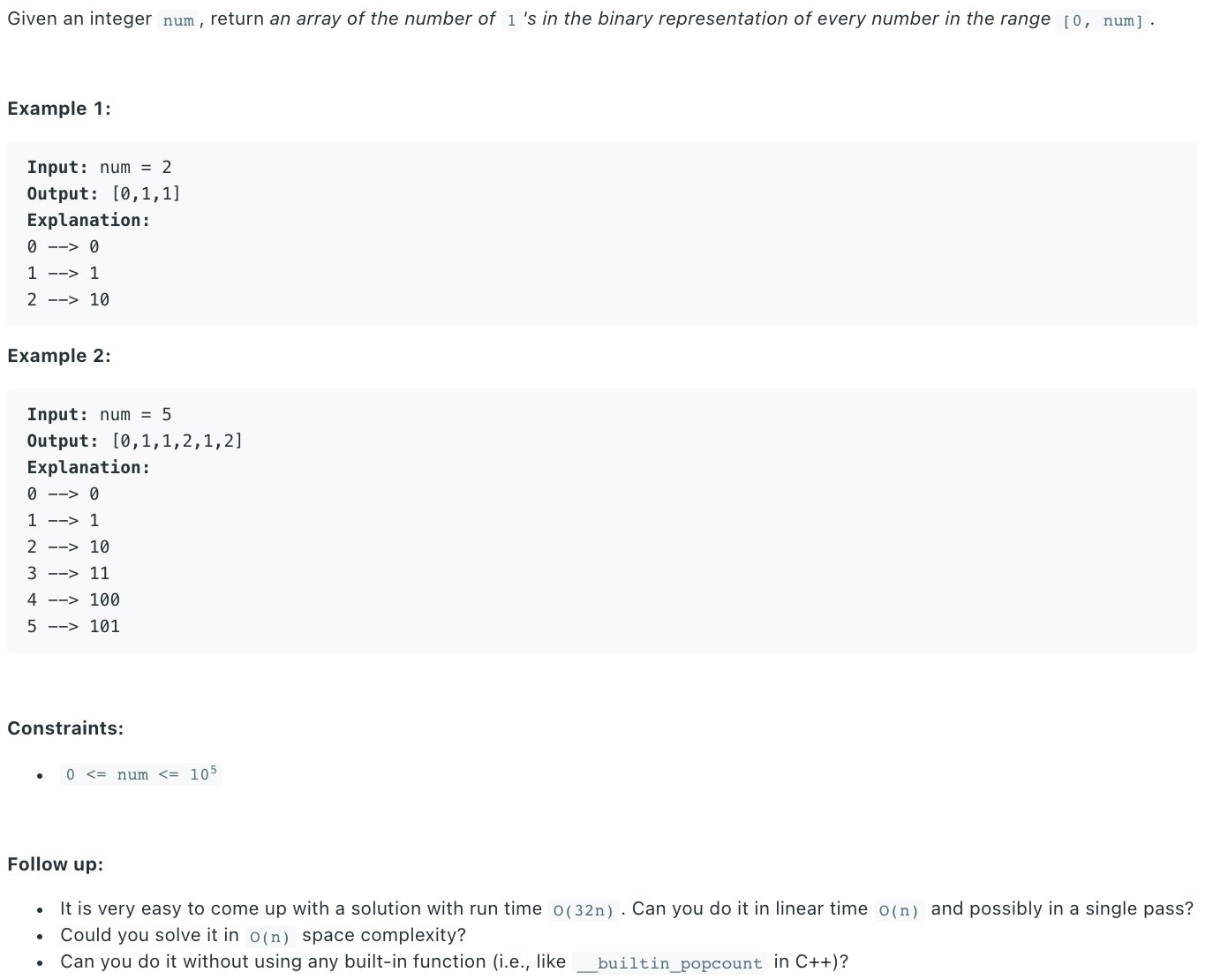Counting Bits
franklinqin0 BitDP

# Solution
The space to store int is constant.
# Brute Force
Let be the number of bits for an int.
Complexity
time:
space:
def countBits(self, num: int) -> List[int]:
def countOnes(x: int) -> int:
ones = 0
while x > 0:
x &= (x - 1)
ones += 1
return ones
res = [countOnes(i) for i in range(num + 1)]
return res
1
2
3
4
5
6
7
8
9
10
2
3
4
5
6
7
8
9
10
# DP
Complexity
time:
space:
# Most Significant Bit
For every positive integer , there exists : a largest power of and , i.e., msb. Let , so and .
During looping, check power of 2: and update: .
def countBits(self, num: int) -> List[int]:
res = [0 for _ in range(num+1)]
for i in range(1, num+1):
# i is a power of 2
if i & (i-1) == 0:
msb = i
res[i] = res[i-msb] + 1
return res
1
2
3
4
5
6
7
8
9
10
2
3
4
5
6
7
8
9
10
# Least Significant Bit
For a positive integer , x >> 1.
def countBits(self, num: int) -> List[int]:
res = [0 for _ in range(num+1)]
for i in range(1, num+1):
lsb = i & 1
res[i] = res[i>>1] + lsb
return res
1
2
3
4
5
6
7
8
2
3
4
5
6
7
8
# Lowest Set Bit
Let , so and 。
def countBits(self, num: int) -> List[int]:
res = [0 for _ in range(num+1)]
for i in range(1, num+1):
res[i] = res[i & (i-1)] + 1
return res
1
2
3
4
5
6
7
2
3
4
5
6
7